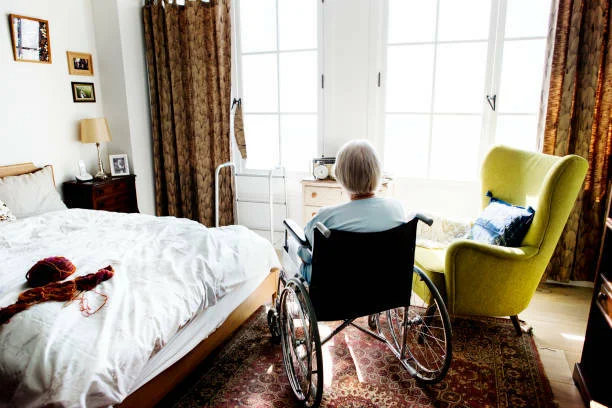We want to believe that we’re helping our elderly parents by placing them in the care of a nursing home facility. Unfortunately, this isn’t always the case.
Signs of Elder Abuse in Nursing Homes
According to the World Health OrganizationHealth Organization (WHO),World Health Organization elder abuse is a single or repeated act, or lack of appropriate action, occurring within any relationship where there is an expectation of trust, which causes harm or distress to an older person. This type of violence constitutes a violation of human rights and includes physical, sexual, psychological and emotional abuse; financial and material abuse; abandonment; neglect; and serious loss of dignity and respect.

In 2021 the WHO reported:
- 1 in 6 people 60 years and older experienced some form of abuse in community settings during the past year.
- Rates of elder abuse are high in institutions such as nursing homes and long-term care facilities, with 2 in 3 staff reporting that they have committed abuse in the past year.
- Rates of elder abuse have increased during the COVID-19 pandemic.
- Elder abuse can lead to serious physical injuries and long-term psychological consequences.
- Elder abuse is predicted to increase as many countries are experiencing rapidly ageing populations.
- The global population of people aged 60 years and older will more than double, from 900 million in 2015 to about 2 billion in 2050.
Is Neglect the Same as Abuse?
The U.S. Centers for Disease Control and Prevention (CDC) defines neglect as “the failure to meet an older adult’s basic needs. These needs include food, water, shelter, clothing, hygiene, and essential medical care.”
One common are of neglect are nursing home falls. Nursing home falls are often severe for the elderly, resulting in broken bones that take a long time to heal for advanced-aged patients. After a fall in a nursing home, you shouldn’t hesitate to investigate the nursing home. Some actions you can take include:
- Asking your elderly loved one what happened
- Asking the nursing home staff and management about what occurred
- Checking with your loved one’s examining physician for insight
- Speaking with a nursing home abuse lawyer in Connecticut
Abuse and Neglect Should be Reported
When you suspect nursing home neglect, you should also compile evidence of your findings and file a complaint with the Connecticut Department of Public Health.
The state has certain protections in place that are designed to hold nursing homes accountable, but their mandates may not make up for harm already caused. To truly hold a nursing home accountable for the harm caused to your loved one at their nursing home, you may need to file a civil lawsuit.
If your parent is suffering from abuse in their nursing home, additional signs might include:
- Bruising, scratches, or more severe injuries
- Torn clothing
- Broken personal items
- Bedsores
- Unpaid bills
- Unclean or unsafe living conditions
In addition to physical signs of elder abuse in nursing homes, there are emotional signs to watch out for. If you notice your loved one has become withdrawn, agitated, or seems unable to sleep, you should investigate.
Speak with a Connecticut Nursing Home Abuse and Neglect Lawyer
I know your family deserves a dedicated and compassionate attorney ready to fight for your elderly parent’s safety and dignity in their nursing home. To learn how I can help you, schedule a free consultation online or call me, attorney Jim Miron, at 203.339.5991 today.
